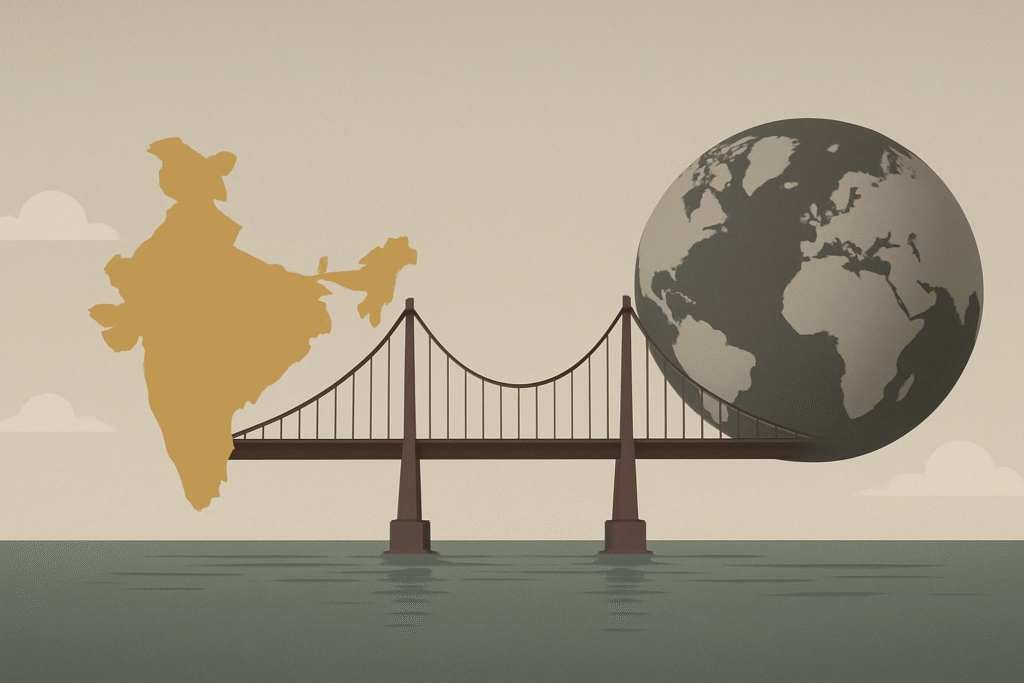Published On: 20th March, 2024
Abstract:
This article delves into the intricate relationship between the United Nations Security Council (UNSC) and the International Criminal Court (ICC) through the lens of their respective powers of referral and deferral. It examines how these powers shape the ICC’s reach and effectiveness, while simultaneously raising concerns about potential politicization and undermining of its independence.
Introduction:
Before the ICC rose from the ashes of ad hoc tribunals like the International Criminal Tribunal for the former Yugoslavia and Rwanda, a patchwork of temporary courts addressed specific acts of cruelty. These tribunals, established by the UNSC to fight atrocities in unique situations, proved valuable but faced limitations. Recognizing the need for a permanent institution dedicated to holding accountable perpetrators of the most serious crimes, the world came together to create the ICC in 2002.
This landmark court, operating under the framework of the Rome Statute, ushered in a new era of global justice. However, the UNSC retains significant influence over the ICC through its special powers outlined in the Statute and the UN Charter. These powers, particularly referral and deferral, have sparked ongoing debate about their impact on the ICC’s independence and effectiveness. Understanding this intricate dance between the UNSC and the ICC is crucial to assessing the court’s role in upholding global justice.
ICC: Holding Individuals Accountable for Genocide, Crimes Against Humanity, and War Crimes
The ICC wields its authority against individual perpetrators of the most heinous crimes against humanity, not against nations or institutions. Under its mandate, the ICC focuses on prosecuting three specific categories of offences: genocide, crimes against humanity, and war crimes. Genocide, defined as the intentional destruction of a group based on ethnicity, race, religion, or nationality, falls within the ICC’s purview. Likewise, the Court holds accountable those who commit widespread or systematic attacks against civilians through acts like murder, torture, slavery, and deportation, constituting crimes against humanity. Finally, the ICC prosecutes individuals responsible for grave breaches of international armed conflict rules, encompassing acts like willful killing, torture, and taking hostages, as war crimes. This targeted approach towards individual accountability for these atrocity crimes aims to deter future violence and uphold the principles of international law.
The Binding Force of ICC Judgements: Justice with Teeth, but Cooperation Key
The ICC stands as a beacon of justice, wielding its authority against individuals responsible for the most heinous crimes against humanity. But does its reach extend beyond pronouncements, carrying the weight of law that binds nations and compels action? While not a simple binary answer, understanding the nuances of the ICC’s judgements reveals a carefully woven tapestry of legal obligation and international cooperation.
For those convicted by the ICC, the answer is a resounding yes. Their verdicts are etched in stone, imposing sentences that serve as a stark reminder of the gravity of their crimes. However, the execution of these sentences hinges on the willingness of states to play their part. The ICC, lacking its own enforcement arm, relies on the cooperation of its member states to arrest and imprison those found guilty. In a world of shifting political landscapes, this element of reliance can introduce complexities, particularly if the convicted individual seeks refuge in a non-member state.
For states that have signed on to the Rome Statute, the ICC’s judgements, while not directly binding, carry significant weight. A web of obligations entwines them, woven from the threads of cooperation and accountability. They are duty-bound to enforce ICC sentences, surrender indicted individuals, and lend support to investigations and prosecutions. This intricate network ensures that the pursuit of justice transcends national borders, fostering a collective responsibility to combat barbarity.
Beyond the ICC’s member states, its judgements resonate even in the halls of nations that haven’t formally committed. Though not directly bound by legal strictures, these non-member states find themselves subject to the persuasive power of international norms and standards established by the ICC. Its investigations and prosecutions can act as catalysts for introspection, prompting them to re-evaluate their own internal mechanisms for addressing atrocity crimes.
Ultimately, the ICC’s judgements stand as powerful pronouncements, wielding the twin forces of legal obligation and moral persuasion. For the convicted, they represent the unyielding hand of justice. For member states, they are a call to action, a reminder of their shared responsibility to uphold the rule of law. And for non-member states, they serve as a beacon, illuminating the path towards a world where accountability transcends borders and justice prevails.
While the intricacies of enforcement may cast shadows of doubt at times, the ICC’s judgements remain a potent force, pushing the boundaries of international law and etching a future where even the darkest transgressions face the unwavering light of accountability.
UNSC Influence Through Referral and Deferral:
Referral Power: A Global Reach Extending Beyond Borders
While the ICC stands as an independent beacon of justice, the UNSC wields a potent influence through its referral power. This single tool can fling open the doors of global justice, empowering the ICC to confront atrocities even in non-member states and situations beyond its usual reach. A prime example is the 2005 UNSC Resolution 1593, which unanimously referred the Darfur situation to the ICC. This marked a historic first, granting the court jurisdiction to investigate and prosecute individuals for war crimes and crimes against humanity committed in that region since 2003. The Darfur case illustrates how the UNSC’s referral power can ignite the pursuit of accountability across borders, potentially reaching areas where national courts are unwilling or unable to act.
However, the interplay of referral and deferral powers reveals the intricate dance between the UNSC and global justice, a dance where the stakes are human lives and the steps can either propel or impede the path towards accountability.
Deferral Power: A Precarious Balancing Act
The UNSC’s deferral power acts as a delicate counterpoint to its referral authority. It allows the Council, under certain circumstances, to temporarily pause the ICC’s pursuit of justice, potentially navigating the treacherous waters of ongoing peace processes. A case in point is the 2013 Kenyan situation, where the UNSC declined to act on a request from the African Union to defer ICC proceedings against Uhuru Kenyatta and William Ruto. Both were facing charges of crimes against humanity related to the 2007-2008 post-election violence in Kenya. The UNSC’s inaction, while allowing the ICC to proceed with the case, highlighted the potential for political considerations to influence the deferral power and raised concerns about selective justice. This case exemplifies the precarious balancing act inherent in deferral power, where the pursuit of peace may momentarily overshadow the immediate pursuit of accountability.
Beyond the Spotlight: Comparing the UNSC’s Reach
Having examined the intricate dance between the UNSC and the ICC, it’s worth exploring how this dynamic compares to the Council’s relationship with other regional criminal tribunals. While the ICC serves as a global focal point for accountability, the UNSC also engages with courts established for specific conflicts or regions, like the Special Court for Sierra Leone (SCSL) and the Extraordinary Chambers in the Courts of Cambodia (ECCC). Comparing these interactions can shed light on the nuances of the UNSC’s influence across different judicial landscapes.
Similarities emerge in the referral and deferral mechanisms. Similar to the ICC, the UNSC holds the power to refer situations to both the SCSL and the ECCC. In Sierra Leone, the Council’s referral in 2000 was crucial in triggering investigations into wartime atrocities. Likewise, the UNSC’s endorsement in 2006 played a key role in establishing the ECCC to address Khmer Rouge crimes. Similarly, deferral powers exist in these regional courts, allowing the UNSC to temporarily suspend proceedings under certain circumstances, such as ongoing peace negotiations.
However, differences also surface. Unlike the ICC, the SCSL and ECCC have sunset clauses, meaning their mandates are limited to specific timeframes. This raises questions about the long-term sustainability of accountability efforts compared to the permanent ICC. Additionally, the regional courts’ mandates are often tailored to specific contexts, addressing crimes committed within their respective countries, while the ICC has broader jurisdiction. This highlights how the UNSC’s reach and influence can be shaped by the unique circumstances of each situation.
Understanding these contrasts and parallels strengthens our analysis of the UNSC’s role in international justice. While the Council’s engagement with the ICC represents a global commitment to accountability, its interactions with regional courts demonstrate a more nuanced approach, responding to specific regional needs and conflicts. Ultimately, examining the diverse landscape of UNSC-backed tribunals offers a richer understanding of the challenges and opportunities in holding perpetrators accountable for the most serious international crimes.
The UNSC’s Shadow: A Continuing Debate
The UNSC’s influence over the ICC has been a subject of ongoing debate and critique. Concerns have been raised about the potential for politicization of referrals and deferrals, and the impact on the ICC’s independence and impartiality. Critics argue that the UNSC’s involvement can be swayed by political alliances and strategic interests, potentially undermining the court’s ability to operate as a truly independent arbiter of international justice.
This debate underlines the complex and multifaceted relationship between the UNSC and the ICC. While the Council’s powers can undoubtedly contribute to the court’s reach and effectiveness, they also raise questions about potential interference and manipulation. As the world continues to grapple with the pursuit of global justice, navigating this intricate dance between the UNSC and the ICC remains a crucial challenge in the ongoing fight against impunity for the most serious international crimes.
Ending:
The dance between the UNSC and the ICC is far from over. As conflicts emerge and evolve, navigating this intricate terrain of accountability and political realities will remain a central challenge in the quest for global justice. Only time will tell whether the two institutions can find a lasting harmony, ensuring justice prevails while safeguarding the ICC’s integrity.”




